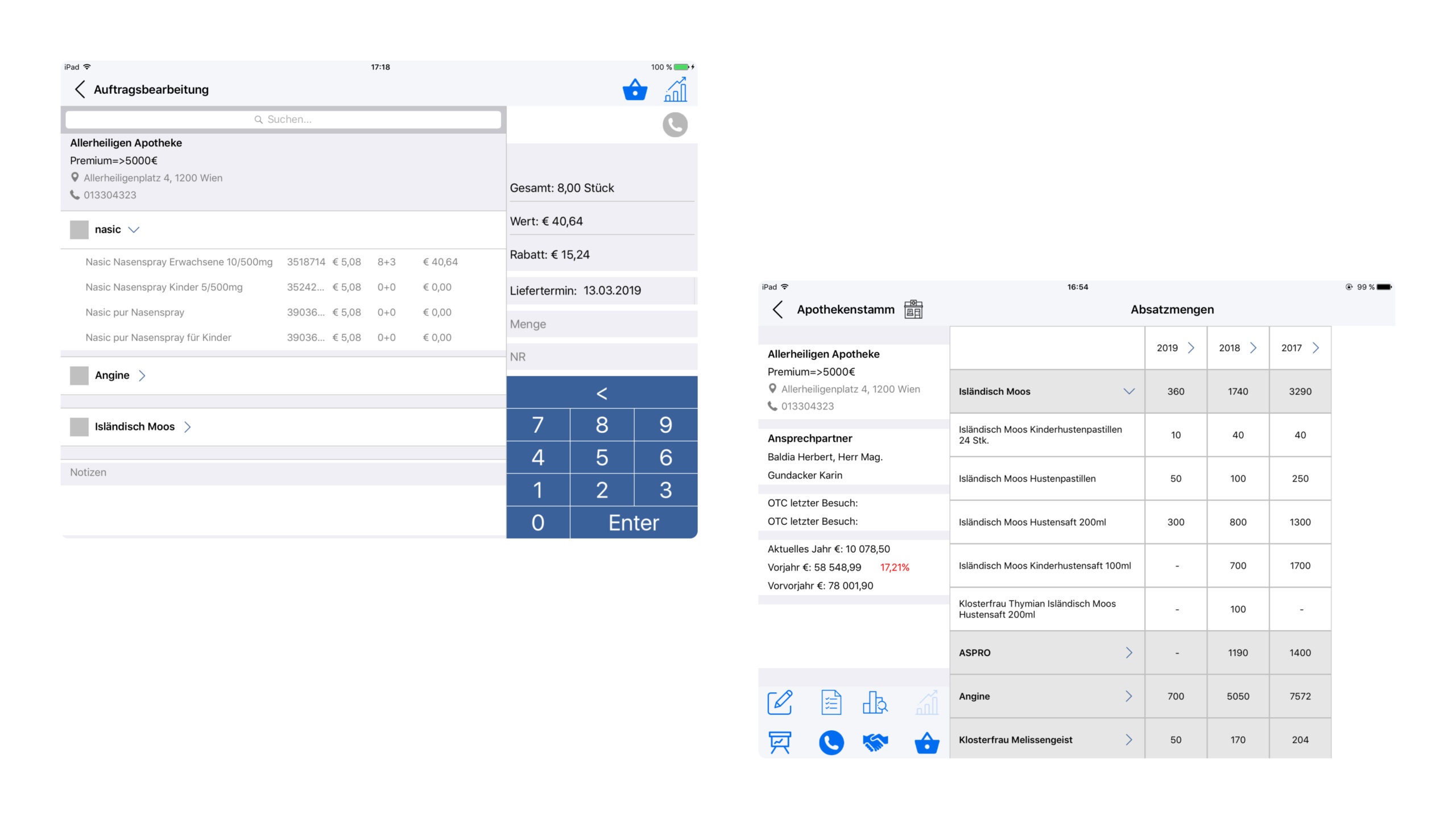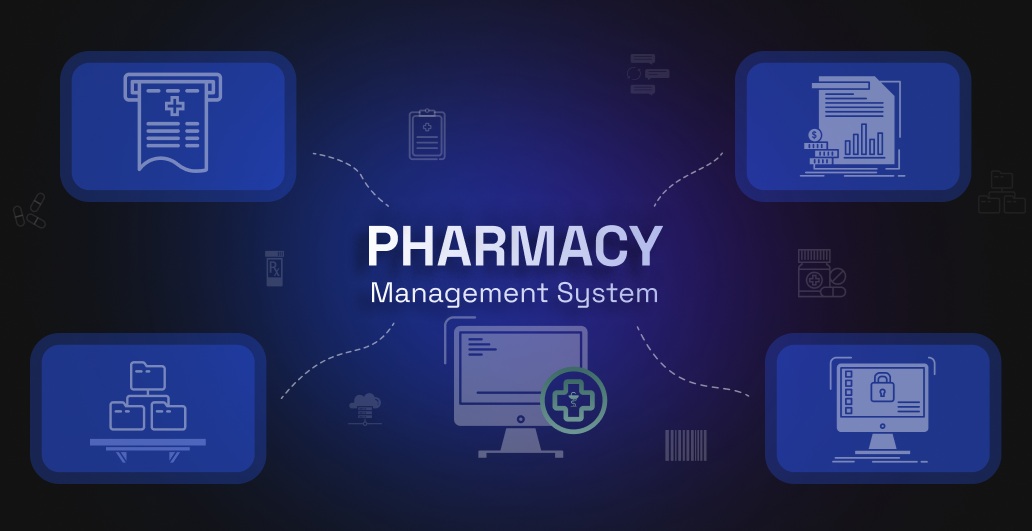Introduction
In today’s world, managing a pharmacy business without automated accounting, record keeping, and inventory management systems is almost unimaginable. These solutions significantly improve the efficiency of pharmacy operations, minimize errors, and ensure strict control over inventory movement.
This article will explore the features, advantages, and principles of modern pharmacy management. We will also provide useful statistical information to illustrate the benefits of implementing such software.
Key standard features in modern pharmacy management systems
Despite the variety of existing systems and the creation of new ones – they all share many features that have become the de facto standard:
- Real-time inventory management
- Barcoding and scanning of goods
- Integration with cash register systems and electronic databases
- Analytical and reporting functions
- Remote access and communication with suppliers
- Quality and shelf life control
- Data security and confidentiality
Developing your own pharmacy management system
Developing automated systems for accounting of medicines in pharmacies is a complex process that includes several key stages.
Requirements analysis and problem statement (handled by the customer, or business analyst):
- Determining the goals and tasks to be solved by the accounting system;
- Gathering and analyzing requirements (of a pharmacy chain or an individual pharmacy);
- Studying the specifics of business processes and existing accounting systems in the pharmacy;
- Formulating a detailed technical specification for system development.
Design of architecture and user interface:
- Developing the overall system architecture and selecting technologies and tools;
- Designing the database structure for storing information on drugs, suppliers, sales, etc;
- Creating user interface prototypes and coordinating with the customer;
- Developing detailed technical documentation for the project.
System development and programming:
- Creating the server part of the system, implementing the business logic and accounting algorithms;
- Developing the client part – user interface, data input forms, reports;
- Integrating with external systems – cash register equipment, vendor systems, and so on;
- Implementing security functions, backup, journaling of operations.
Testing and debugging:
- Modular testing of individual system components;
- Integration testing to ensure proper interaction between system modules;
- User interface testing to assess the convenience of working with the system;
- Load testing to evaluate system performance under high loads;
- Correcting detected errors and defects.
Implementation and user training:
- Installing and customizing the accounting system on servers and pharmacy workstations;
- Transferring data from old accounting systems to the new database;
- Training pharmacy staff on the new system;
- Preparing instructions and user manuals;
- Commissioning the system and providing initial support.
Maintenance and further development:
- Providing technical support to users and assisting with any issues;
- Collecting user feedback and analyzing suggestions for system improvements;
- Developing and implementing updates and adding new functions;
- Adapting the system to changes in legislation and drug accounting requirements.
The entire process of developing an automated system for pharmacy management requires close interaction between the development team and the customer (pharmacy or pharmacy network), considering the specifics of the pharmaceutical industry and regulatory requirements for drug accounting. Therefore, it is essential to establish good communication at the start of requirements development.
How the implementation of automation helped to increase profits: concrete facts
Online reports provide many examples of how implementing automated medication inventory management systems has helped pharmacies and pharmacy chains improve their efficiency and profitability.
According to a study conducted by IMS Health, implementing automated inventory management systems in pharmacy chains can:
- Reduce illiquid inventory levels by 20-30%;
- Increase inventory turnover by 15-20%;
- Reduce logistics and storage costs by 10-15%.
The experience of implementing the accounting system in the pharmacy chain “Rigla” showed the following results:
- 12% profit growth due to optimization of purchases and cost reduction;
- Reduction of inventory time by 40%;
- Reduction of medication errors by 35%.
According to experts’ estimates, comprehensive automation of business processes in pharmacies, including the drug accounting system, enables:
- Increasing the average purchase amount by 5-10% through reduced customer service time;
- Boosting employee productivity by 20-25%;
- Cutting losses from expired drugs by 30-40%.
According to Accenture research, using analytical tools in medication accounting systems has shown to:
- Improve demand forecasting accuracy by 10-15%;
- Optimize pharmacy assortment, increasing the share of high-margin items by 5-7%;
- Enhance pharmacy availability of needed medications by 20-25%.
Data from the American Pharmacists Association (APhA) indicates that the implementation of electronic workflow and record-keeping systems in U.S. pharmacies has resulted in:
- 50-60% reduction in order and prescription processing time;
- Reduced medication errors by 80-90%;
- Savings of up to $1 million per year for the average pharmacy chain through streamlining processes.
Of course, specific results may vary depending on factors such as the size of the pharmacy or pharmacy chain, its operational specifics, the level of automation, and other variables. However, the above figures generally indicate that competent implementation of modern automation systems can yield tangible financial and operational benefits for pharmacy businesses.
Our expertise
In our portfolio, we have experience developing accounting systems accessible through mobile platforms, enhancing usability.
Klosterfrau: automation solution for pharmacy networks
Our solution was designed to streamline employees’ work on the accounting system by integrating all operations into a single platform, from ordering goods to processing receipts and delivering them to customers. This ‘All-in-One’ system is highly convenient for establishing and maintaining a unified network without the need for separate systems.
It provides automatic real-time inventory control of medicines based on receipts and sales data, significantly increasing the efficiency and accuracy of inventory management processes.
Klosterfrau: modern pharmacy management system
So, if your business requires creating a system for specific tasks instead of using off-the-shelf solutions, you can safely turn to us.
Conclusion
Modern automation systems are essential for effective pharmacy business management. They optimize accounting processes significantly, reduce costs, and enhance the quality of customer service.
Implementing these systems is crucial for the successful development of pharmacies in today’s highly competitive pharmaceutical market. At IT-Dimension, we develop management and accounting solutions of varying complexity tailored to different business objectives. Whether it’s web, mobile, or desktop apps with automation functionalities, we aim to enhance business processes significantly, making them more transparent and easier to manage.
Links:
https://www.researchgate.net/publication/321688640_Implementation_of_an_integrated_pharmacy_supply_management_strategy
https://newsroom.accenture.com/news/2004/accenture-helps-form-rfid-industry-group-to-evaluate-technologys-value-in-pharmaceutical-industry
https://www.ncbi.nlm.nih.gov/pmc/articles/PMC6684014










